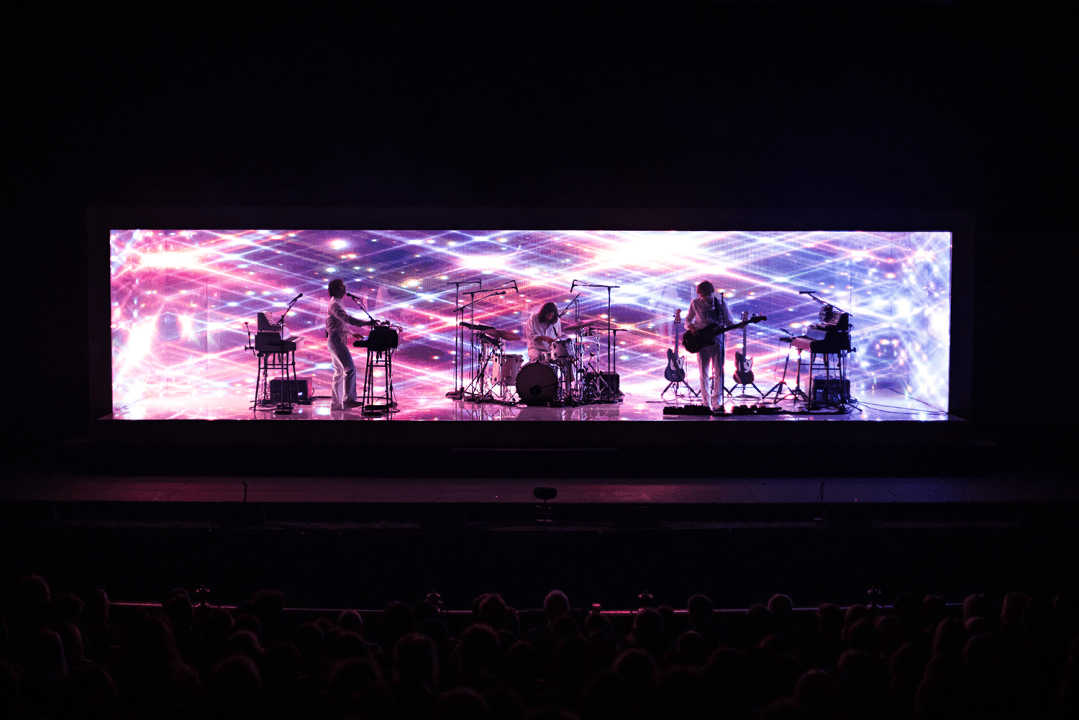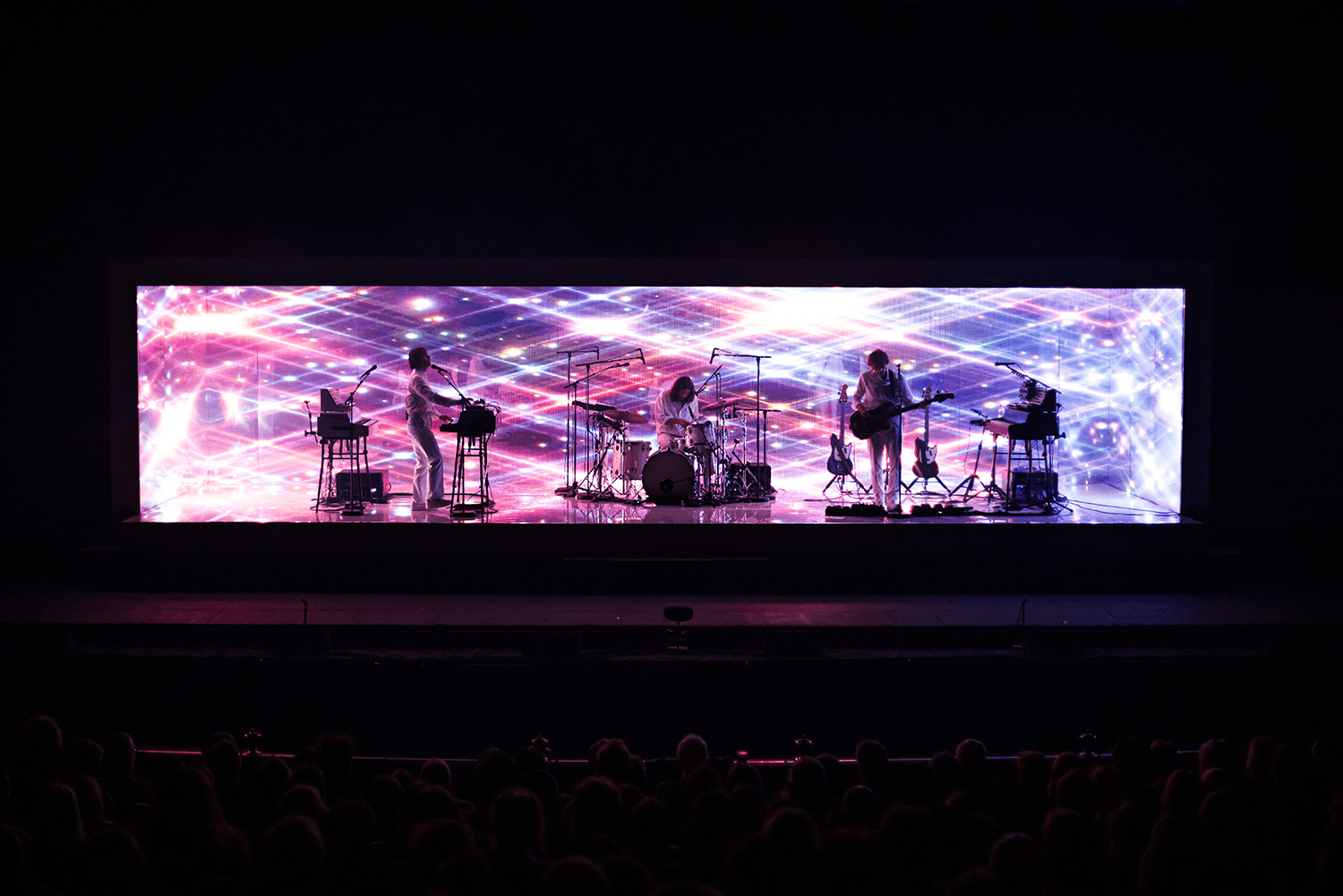Sensible prog-rock bands try to ensure no one ever realises they play prog. What happens when you are deemed a prog band is that you are condemned to the margins – little radio airtime, few TV appearances, barely any coverage in the mainstream press – because it has been decided you exist solely for the delectation of a tribe that baffles the rest of the world. Once non-proggers have decided you are prog, that’s it. There is no way back for you. Just collect your Campaign for Real Ale membership card, go home and practise your drum solos.
Once non-proggers have decided you are prog, that’s it. There is no way back for you
Hence Radiohead – absolutely, indubitably a prog band, right down to the tricksy time signatures – don’t bang on about Tales From Topographic Oceans. Hence Muse – also absolutely, indubitably a prog band, right down to the concept albums – present themselves to the world as a power trio. And watching Air’s stunning son et lumière performance of their debut album Moon Safari – with long instrumental interludes, and Jean-Benoît Dunckel facing the audience, playing different synths either side of him with each hand, giving it the full Rick Wakeman – it was absolutely apparent that they too are a prog band, given a fair wind.
Moon Safari, which came out in 1998, was one of those records that seemed to exist in a world of its own. There were hints of lounge music and easy listening, bits of krautrock and electronica, all wrapped up in a package that was playful and welcoming, rather than just being an introduction to Dunckel and Nicolas Godin’s exquisite taste. Live, what came through most strongly was the absolute 1972-Pink-Floydishness of it all – the long, lazy melodies, the sense of stillness and care over the whole sound.








Comments
Join the debate for just £1 a month
Be part of the conversation with other Spectator readers by getting your first three months for £3.
UNLOCK ACCESS Just £1 a monthAlready a subscriber? Log in